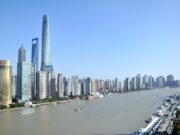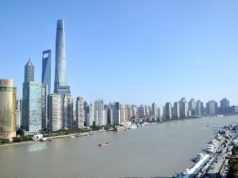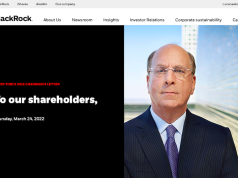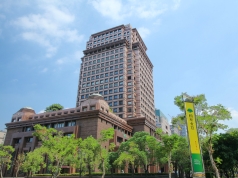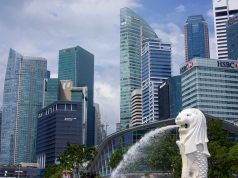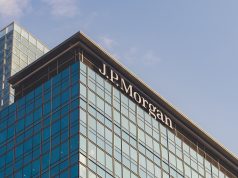Hong Kong SFC CEO Ashley Alder: Regulatory Perspective on Expanding Market Access at ASIFMA China Capital Markets Conference
26th May 2022 | Hong Kong
Hong Kong Securities & Futures Commission (SFC) CEO Ashley Alder gave a keynote speech on “Regulatory Perspective on Expanding Market Access” at the ASIFMA China Capital Markets Conference on 25th May 2022, highlighting China Mainland capital markets, financial system and Hong Kong as an international financial centre. Hong Kong SFC CEO Ashley Alder spoke on key issues including regulations, Stock Connect (2014 launched), Southbound Stock Connect accounting for 10% of Hong Kong stock market daily volume, Northbound averaged RMB 120 billion (2021, equal to 52% of HK domestic volume), cross-border misconduct, systemic risks to cross-border flows, Bond Connect (2017 launched), Bond trading volume RMB 6.5 trillion (2021), Wealth Management Connect (Greater Bay Area, launch October 2021) with more than 100 HK SFC authorised funds from 30+ asset managers made available to Mainland investors via Hong Kong banks, A-share futures, ETF Connect, prioritising financial system resilience, stress tests of broker (liquidity) and supervision of prime brokers (Archegos Capital Mgmt incident).
“ Hong Kong SFC CEO Ashley Alder: Regulatory Perspective on Expanding Market Access “
ASIFMA (Asia Securities Industry & Financial Markets Association) is an independent, regional trade association with over 165+ member firms comprising a diverse range of leading financial institutions from both the buy and sell side. Our mission is to promote the development of liquid, deep and broad capital markets in Asia, which is fundamental to the region’s economic growth.
Hong Kong SFC CEO Ashley Alder Full Speech:

Regulatory Perspective on Expanding Market Access at ASIFMA China Capital Markets Conference
I want to thank ASIFMA for inviting me to provide a regulatory perspective to end today’s discussion.
Market access and other cross-border programmes have transformed the way in which the Mainland’s capital markets and financial system connect with the rest of the world. In fact, developments over the past 10 years or so have been quite remarkable, revolutionising the way in which Hong Kong operates as an international financial centre.
I would like to start with a specific focus on regulation underpinning mainland China and Hong Kong market tie-ups and then briefly touch on financial system resilience in these extraordinary times.
The market access revolution
Stock Connect was a ground-breaking initiative when it was first introduced in 2014, and it has since become a mainstay. Although the word “connect” has been appropriated by other cross- border programmes with other jurisdictions, the “closed loop” design of our own scheme remains unique.
The success of this experiment is evident from the fact that southbound trading under Stock Connect now accounts for more than 10 percent of daily turnover in the Hong Kong stock market. Northbound trading averaged RMB120 billion during 2021, equivalent to 52% of Hong Kong’s average domestic equity turnover.
As I have said on other occasions, the success of Stock Connect has all along been highly dependent on the way in which the Mainland authorities and the SFC work together as equal partners supervising different regulatory systems.
Our initial concern back in 2014 lay in negotiating the new Stock Connect access channel to ensure that both sides—the Mainland and Hong Kong—had confidence that new risks arising from cross-border financial flows would be managed properly.
These risks were basically of two types. The first was cross-border market misconduct— mainly because investors who participate do so through intermediaries based in their home jurisdiction and require no form of approval to trade from the host regulator. This means the regulator of the host stock market does not have a locally-regulated firm to tackle if things go wrong.
The second type was the potential for systemic risks to accompany cross-border flows. This was a particular worry for Mainland authorities as they had been used to supervising a capital market whose investors and other participants were almost entirely domestic, unlike Hong Kong.
These concerns were dealt with through a series of cooperative memoranda of understanding and other arrangements centred on reciprocal exchanges of information about key risks as well as regulatory assistance in specific cases. These arrangements have become more sophisticated over time.
More recently, we have been implementing a new investor identification system to improve market surveillance, starting with northbound trading into the A-share market. This system will soon cover all trading in the Hong Kong market, including southbound trading.
This is just one example of how our regulatory toolbox can be adapted to better manage risks arising from cross-border fund flows. Another example is how we interpret data on the way in which over-the-counter derivatives—for example total return swaps—are used by end investors to gain indirect exposures to local markets as well as to the A-share market.
Our experience so far is that these arrangements have been effective in achieving what we set out to do. We ensured that investors could trade through Stock Connect with full confidence in high levels of investor protection around secondary market conduct. And we could ensure that both we and the China Securities Regulatory Commission (CSRC) had sufficient but appropriate visibility to manage key risks.
As Stock Connect took off and volumes grew, we could then focus more on how to gradually expand the scope of market access channels. Each of these was predicated on underlying bilateral regulatory agreements which built on the same philosophy as those we struck back in 2014.
Bond Connect
Bond Connect was launched in July 2017, with northbound trading allowing Hong Kong and overseas investors to invest in the China Interbank Bond Market.
Trading has been very active—a total of RMB6.5 trillion in 2021, up 33.1% from 2020. Last year, the number of eligible foreign investors admitted for trading grew nearly 40%.
Building on the success of northbound Bond Connect, the southbound leg started operating in September 2021, providing a new channel for Mainland institutional investors to invest in offshore bonds through Hong Kong.
Wealth Management Connect
A more recent initiative is Wealth Management Connect, which was introduced on a pilot basis in the Guangdong-Hong Kong-Macao Greater Bay Area in October 2021. More than 100 SFC- authorised Hong Kong-domiciled funds managed by over 30 asset managers were made available to Mainland investors via Hong Kong banks.
Uptake so far has been slow, in part due to COVID-related restrictions and an “execution only” framework which inhibits proactive distribution. We are actively looking at ways to increase quotas, expand the scope of eligible products and participants and, crucially, improve distribution.
As it scales up, this programme promises to be a model for the future expansion of cross- border market access to the asset and wealth management business. In this context, I should also say that we are keen to expand the Mainland-Hong Kong Mutual Recognition of Funds framework by relaxing restrictions on the value of fund flows from the host market as well as the existing limits on fund management delegation.
A-share futures
There have also been important developments in related areas, the most significant of which was the introduction of MSCI China A 50 Connect Index Futures in Hong Kong last October, after many years of discussion. Shortly after its launch, this new A-share futures contract became HKEX’s1 top MSCI index futures contract in terms of trading and open interest.
Back when MSCI included A shares in its Emerging Markets Index five years ago—which itself turbocharged northbound flows—it was clear that there was enormous market potential for offshore risk management products using equity index and other futures, and that Hong Kong was uniquely positioned as the best place to hedge Mainland exposures.
Of course, the introduction of more sophisticated hedging and similar tools means that we, as regulator, need to manage new risks. This means stepping up our supervision and monitoring of futures trading and also working closely with our Mainland counterparts under a regulatory memorandum of understanding designed specifically for offshore futures. Amongst other things, this deals with the way in which we monitor the potential for offshore derivatives trading to pose risks for the underlying A-share market, and how we communicate with the CSRC about indications of risk.
This is yet another example of the basic modus operandi established for Stock Connect, which was to ensure that the further opening up of the Mainland markets is founded on specific bilateral regulatory agreements which must be in place as a precondition for the launch of any new initiatives.
We recognise that this process can lengthen the “time to market”, but the end result is one where all can be confident that it rests on a solid framework.
ETF2 Connect
Looking ahead, some new “Connect” initiatives in the pipeline will provide more opportunities. The next will be to include ETFs in Stock Connect.
This will provide a quick and cost-efficient way for ETF managers to make their funds available on a cross-border basis under Stock Connect, which is again unique and clearly distinguishable from the many ETF cross-listings that the Mainland has set up with Hong Kong and other jurisdictions so far.
Participating ETFs will not be subject to product-by-product approval by the host regulator, though they will need to meet eligibility requirements around factors such as fund size, turnover and whether an underlying index mainly tracks stocks eligible for trading under Stock Connect.
The scope of ETF Connect may look narrow at first, but I hope that eligibility will be relaxed as the programme gains traction. This would basically follow the pilot—or testing the waters— approach we are familiar with over many years of cross-border access schemes. Here patience is a virtue.
Building resilience
To finish I would like to move to a broader perspective, which is to do with the continuing bouts of market volatility we are now experiencing.
A number of factors—now very familiar—have combined to create unprecedented uncertainty.
These include lockdowns, inflation, rising interest rates, commodity shocks, supply-chain constraints, weak earnings and elevated geopolitical risks as well as—on the Mainland—an economic slowdown and regulatory challenges in different sectors.
The one point I would like to make here is that the SFC prioritises financial system resilience above everything else. The system needs to withstand high volatility as well as unforeseen shocks, enabling trading to continue so that markets perform their pricing and liquidity functions without interruption or intervention.
Therefore, we conduct frequent stress tests of brokers to understand the potential impact on their liquid capital of large fluctuations in the price of a single stock or a sector-wide shock.
When some large players in the Mainland property sector were facing adverse credit events, we acted fast to gauge firms’ exposures and make sure they had appropriate risk-mitigation measures in place.
We have also stepped up our supervision of prime brokers to monitor systemic risks arising from their activities. The Archegos3 incident prompted us to have a fresh look at how to use trade repository data to assess potential concentration risk. We are now leading a global Financial Stability Board and IOSCO4 project to enable regulators to make better use of trade repository data to achieve its original purpose, which was to identify the sort of derivatives risks that played a big part in the Global Financial Crisis.
Investment fund redemption pressures is another area where we have been keeping a close watch during recent bouts of volatility. Crucially, we also make sure the Hong Kong Stock Exchange’s margining models are properly calibrated to ensure that market volatility does not pose a risk to the clearing and settlement of trades.
In short, our objectives for the market can be summed up in one word: “confidence”. Confidence that the Connect schemes are based on a rock-solid regulatory framework, and confidence that our regulated firms and the Stock Exchange are sufficiently resilient to cope with the unprecedented set of challenges we now face.
Thank you.
Ashley Alder
Hong Kong SFC CEO
Sign Up / Register
Caproasia Users
- Manage $20 million to $3 billion of assets
- Invest $3 million to $300 million
- Advise institutions, billionaires, UHNWs & HNWs
Caproasia Platforms | 11,000 Investors & Advisors
- Caproasia.com
- Caproasia Access
- Caproasia Events
- The Financial Centre | Find Services
- Membership
- Family Office Circle
- Professional Investor Circle
- Investor Relations Network
Monthly Roundtable & Networking
Family Office Programs
The 2025 Investment Day
- March - Hong Kong
- March - Singapore
- July - Hong Kong
- July - Singapore
- Sept- Hong Kong
- Sept - Singapore
- Oct- Hong Kong
- Nov - Singapore
- Visit: The Investment Day | Register: Click here
Caproasia Summits
- The Institutional Investor Summit
- The Investment / Alternatives Summit
- The Private Wealth Summit
- The Family Office Summit
- The CEO & Entrepreneur Summit
- The Capital Markets Summit
- The ESG / Sustainable Investment Summit



